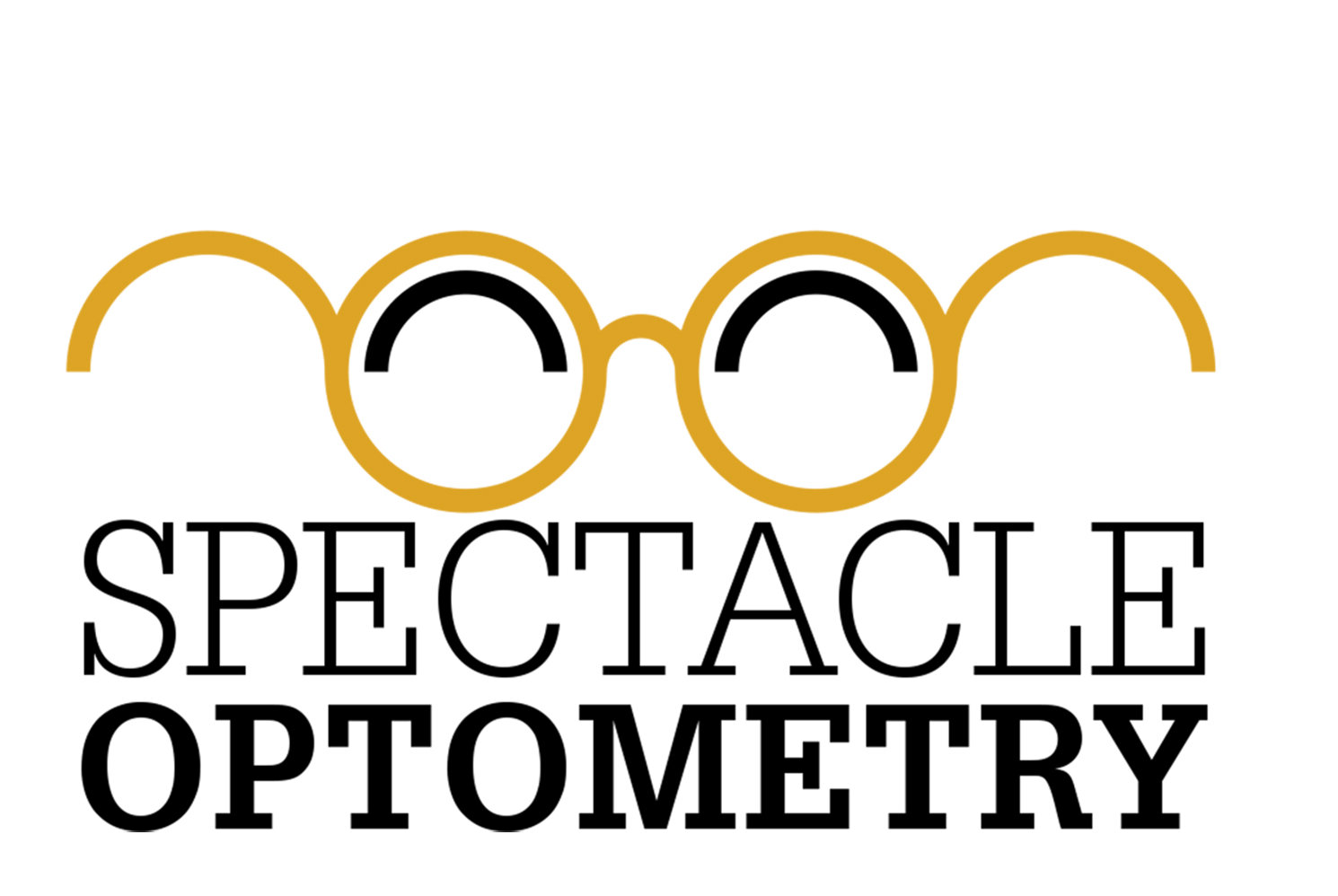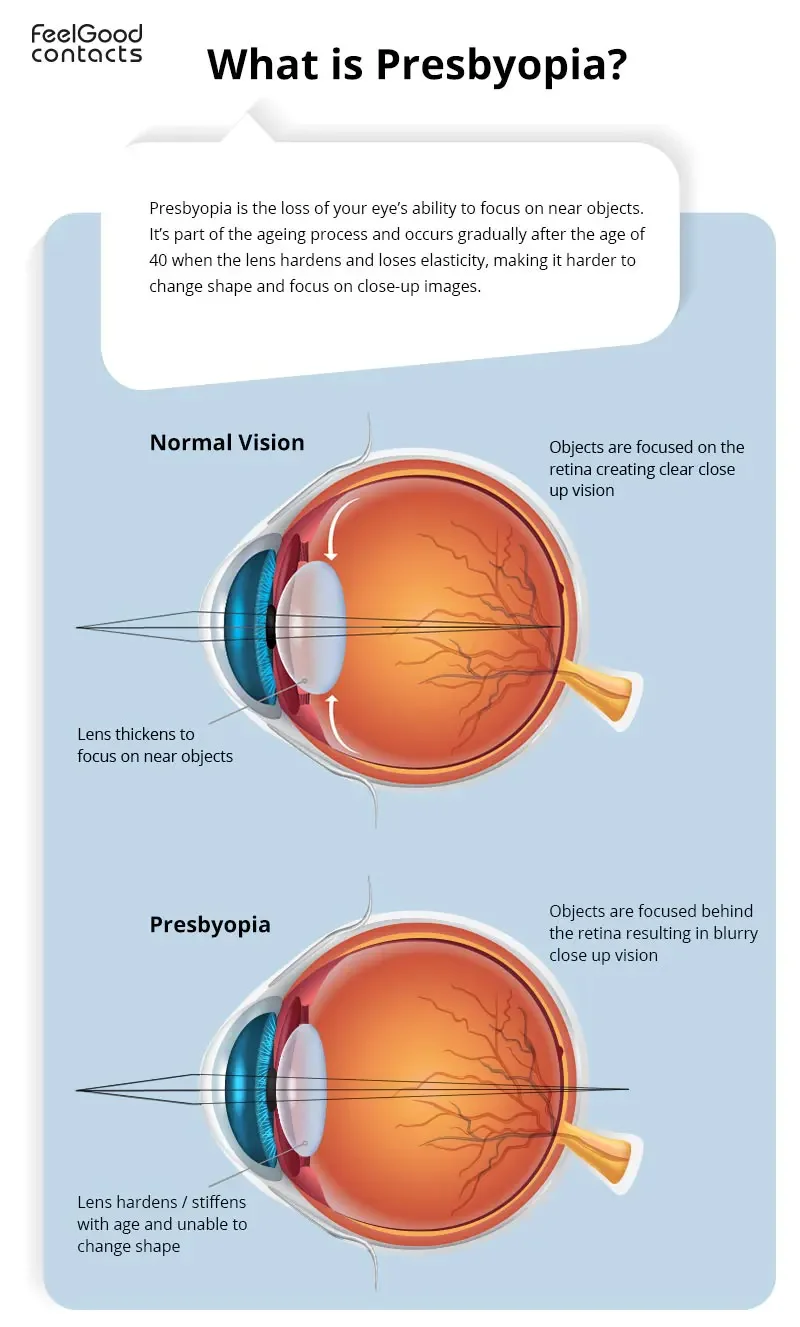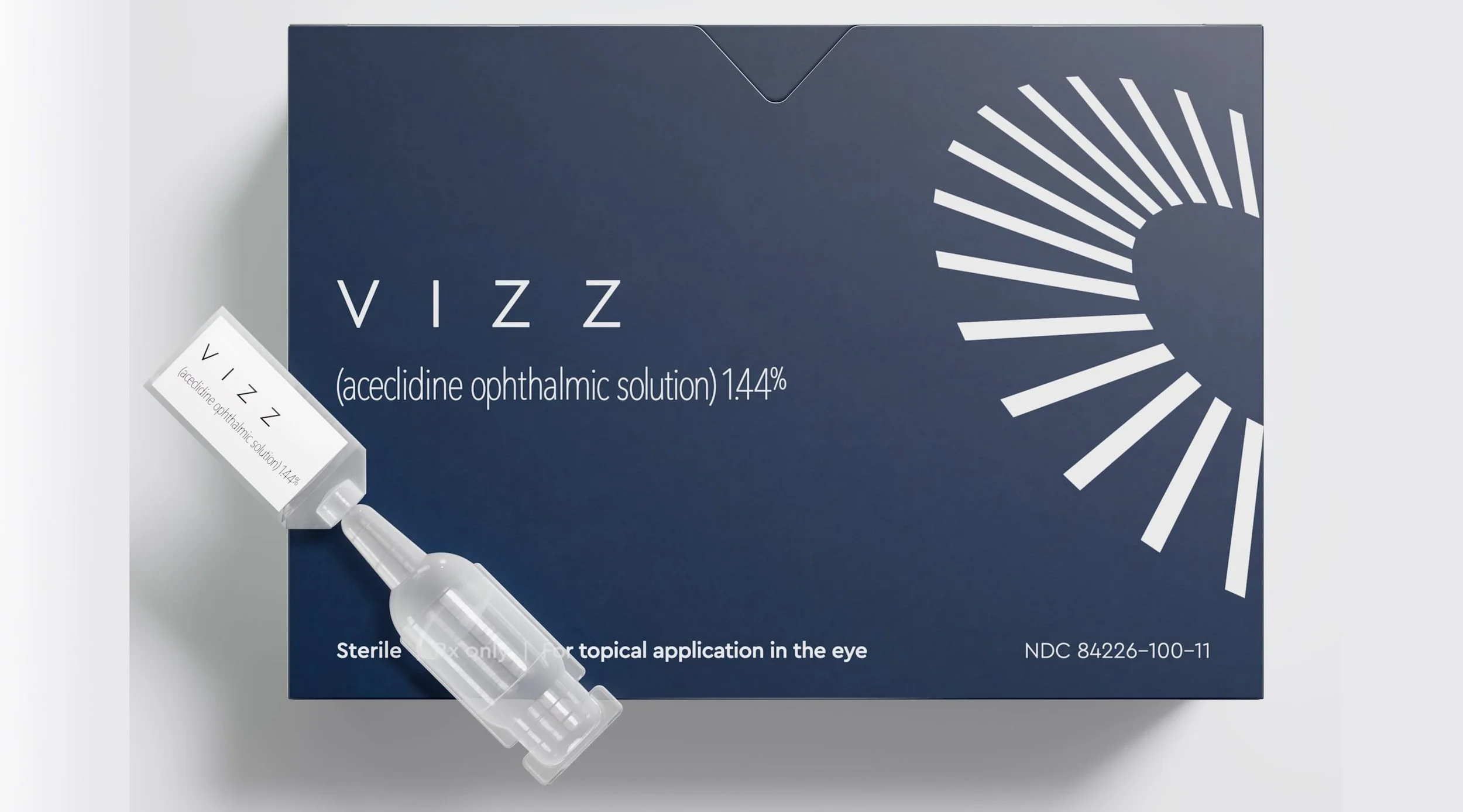IMPROVE YOUR VIS WITH VIZZ
Presbyopia, or age-related near vision issues, will effect everyone over 40 years of age (give or take a few years) in some capacity. Most will notice the need to pull away reading material to see more clearly, magnify text on your phone, or ensure proper lighting to have a chance at seeing what they are looking at up close.
Why does this happen?
The lens in our eye works to expand or contract as a way of focusing the image on the retina so we can see at any distance. When the lens expands, it is looking at something further away. When the lens contracts, it is accommodating or using it’s muscles to look at something closer. As we age, the lens gradually looses the ability to contract and create a clear image when reading. Over time, the need for reading help to correct this lens change becomes more and more.
What can we do to correct this?
Most people will require the use of reading glasses to help magnify the near image and make it easier to read. Some can also use contact lenses as a way to correct both their distance and near vision to see sharper. With contact lenses, it is a give and a take though. You may not get crisp vision in either distance or reading, but you will be able to see better in both directions than without. For the crispest vision up close, the recommendation is still to use reading glasses.
What is this I’m hearing about eye drops to help my vision?
It has long been a side-effect of miotic eye drops, pilocarpine especially, to create a pinhole effect or reducing the pupil size to increase the depth of focus and thus creating clearer near vision. Recently, there have been a few eye drops marketed solely for the use of improving near vision, most recognizable are Vuity and Vizz. Vizz is the most recent, with FDA approval in July and pharmacy rollout in October of 2025. Vizz comes in individual droperettes that patients will instill one drop then a subsequent drop 30 mins later for best results throughout the day. While the upside of improved near vision for up to 10 hours sounds great, some significant, while rare side effects do exist. The most common complaints are eye irritation, dim vision and headaches, while more rare side effects include retinal detachment or tears of the retina.
Knowing the risks and side effects of this daily eyedrop, we still recommend eye glasses as the best way to treat your near vision struggles. However, for some of our patients, we know this eyedrop can be game-changing, and we are here to help!





